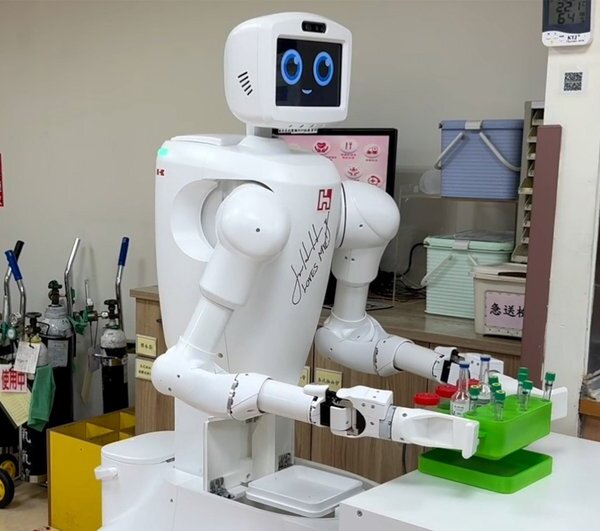
Foxconn and Kawasaki created nurse robot against shortage of 4.5 million personnel
According to World Health Organization forecasts, by 2030 the planet will lack more than 4.5 million nurses. Mass personnel burnout and critical workloads threaten healthcare systems globally.
A technological solution comes from Taiwan. Foxconn corporation together with Kawasaki Heavy Industries created the Nurabot nurse robot based on NVIDIA technologies. The system is undergoing trials in leading Taiwanese clinics, performing routine tasks. Medication delivery, ward patrolling, visitor assistance and distribution of educational materials.
Nurabot represents part of a comprehensive artificial intelligence ecosystem. Developers built digital twins of hospitals where the robot learns in virtual environment through Isaac platform and Omniverse simulators. NVIDIA Jetson Orin and Holoscan hardware platform provides instant perception of dynamic hospital environment.
Implementation statistical indicators are impressive. Nurabot reduced personnel load by 30%, especially during night shifts and visiting hours. Nurses reduced the number of unnecessary movements around the ward, freeing up time for critically important tasks – patient communication, diagnostics and care.
On one hand, robotization solves the problem of personnel shortage. On the other – it raises questions of medical worker deskilling and ethics of machine care for people in vulnerable condition.
Autor: AIvengo
For 5 years I have been working with machine learning and artificial intelligence. And this field never ceases to amaze, inspire and interest me.
Latest News
UBTech will send Walker S2 robots to serve on China's border for $37 millionChinese company UBTech won a contract for $37 million. And will send humanoid robots Walker S2 to serve on China's border with Vietnam. South China Morning Post reports that the robots will interact with tourists and staff, perform logistics operations, inspect cargo and patrol the area. And characteristically — they can independently change their battery.
AI chatbots generate content that exacerbates eating disordersA joint study by Stanford University and the Center for Democracy and Technology showed a disturbing picture. Chatbots with artificial intelligence pose a serious risk to people with eating disorders. Scientists warn that neural networks hand out harmful advice about diets. They suggest ways to hide the disorder and generate "inspiring weight loss content" that worsens the problem.
OpenAGI released the Lux model that overtakes Google and OpenAIStartup OpenAGI released the Lux model for computer control and claims this is a breakthrough. According to benchmarks, the model overtakes analogues from Google, OpenAI and Anthropic by a whole generation. Moreover, it works faster. About 1 second per step instead of 3 seconds for competitors. And 10 times cheaper in cost per processing 1 token.

